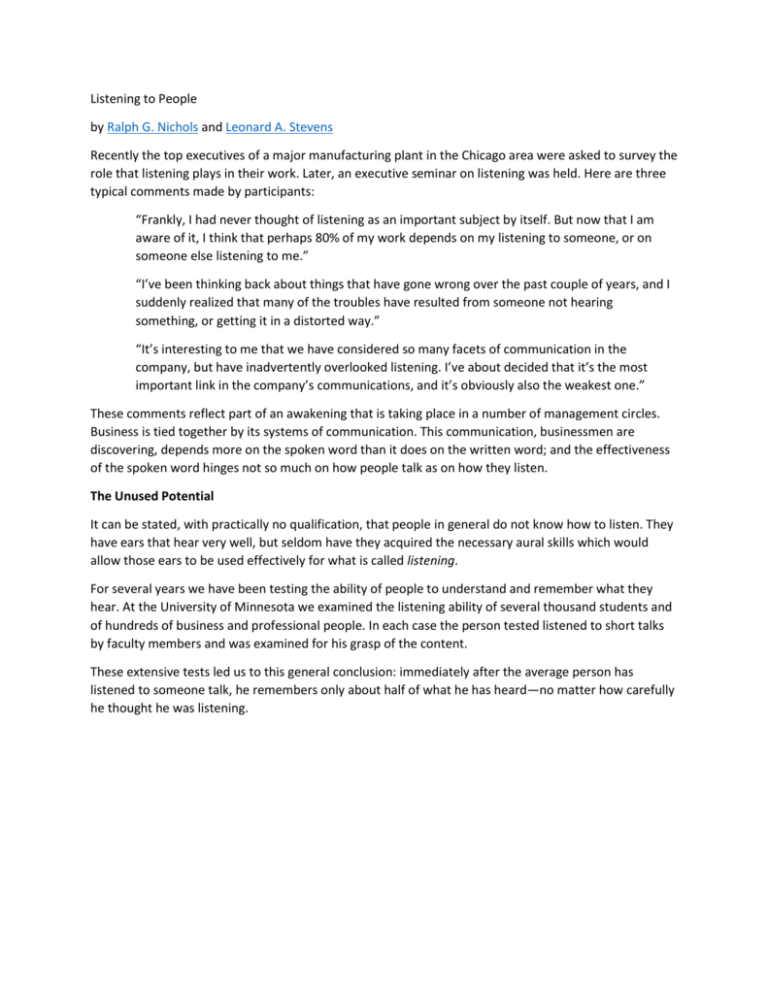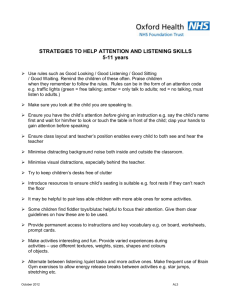Listening to People by Ralph G. Nichols and Leonard A. Stevens
advertisement

Listening to People by Ralph G. Nichols and Leonard A. Stevens Recently the top executives of a major manufacturing plant in the Chicago area were asked to survey the role that listening plays in their work. Later, an executive seminar on listening was held. Here are three typical comments made by participants: “Frankly, I had never thought of listening as an important subject by itself. But now that I am aware of it, I think that perhaps 80% of my work depends on my listening to someone, or on someone else listening to me.” “I’ve been thinking back about things that have gone wrong over the past couple of years, and I suddenly realized that many of the troubles have resulted from someone not hearing something, or getting it in a distorted way.” “It’s interesting to me that we have considered so many facets of communication in the company, but have inadvertently overlooked listening. I’ve about decided that it’s the most important link in the company’s communications, and it’s obviously also the weakest one.” These comments reflect part of an awakening that is taking place in a number of management circles. Business is tied together by its systems of communication. This communication, businessmen are discovering, depends more on the spoken word than it does on the written word; and the effectiveness of the spoken word hinges not so much on how people talk as on how they listen. The Unused Potential It can be stated, with practically no qualification, that people in general do not know how to listen. They have ears that hear very well, but seldom have they acquired the necessary aural skills which would allow those ears to be used effectively for what is called listening. For several years we have been testing the ability of people to understand and remember what they hear. At the University of Minnesota we examined the listening ability of several thousand students and of hundreds of business and professional people. In each case the person tested listened to short talks by faculty members and was examined for his grasp of the content. These extensive tests led us to this general conclusion: immediately after the average person has listened to someone talk, he remembers only about half of what he has heard—no matter how carefully he thought he was listening.





